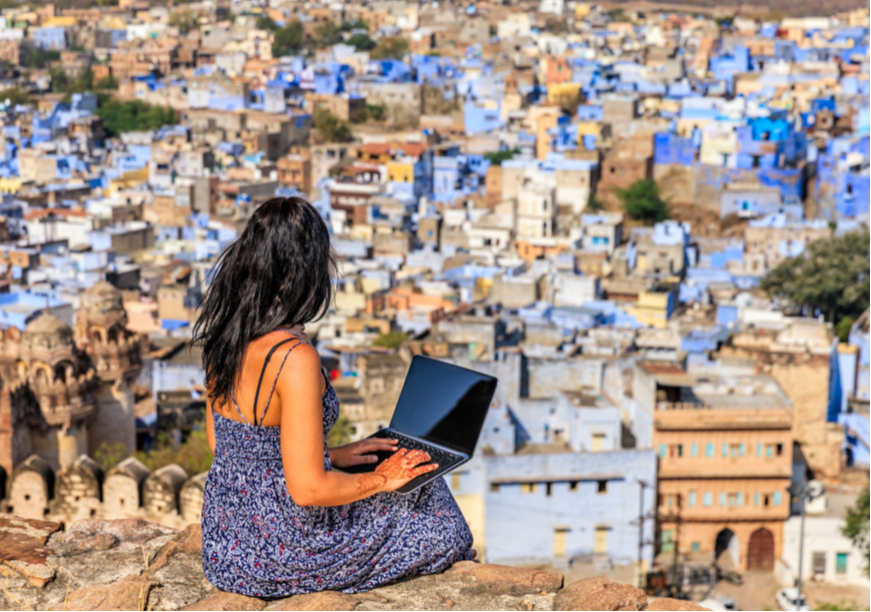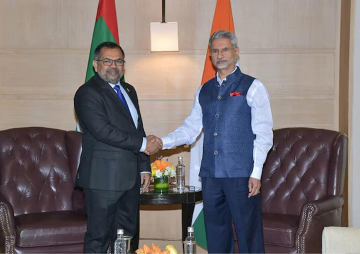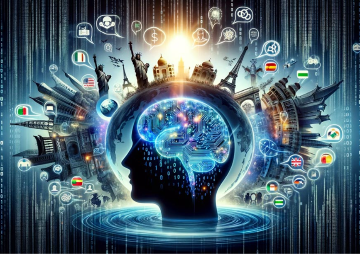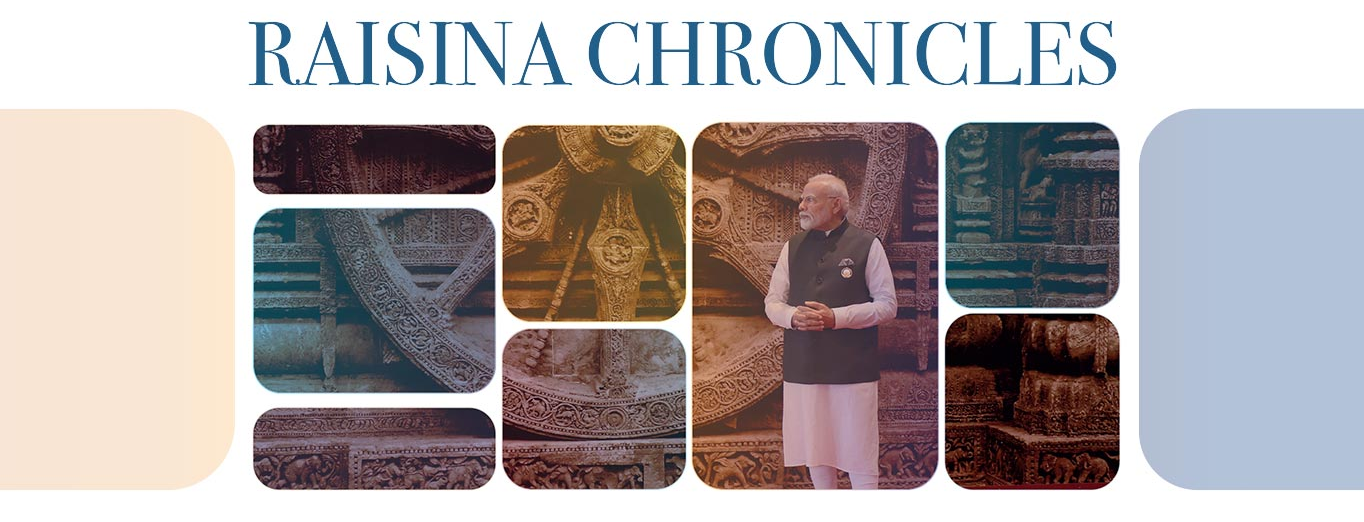
This article is a part of the series - Raisina Chronicles 2024
Despite having generated many global benefits (including poverty reduction), globalisation has been under attack from the political Left, Right, and populists of different types. Unfortunately, its ardent defenders—often well-meaning liberals—have not helped the cause. Caught between the doomsayers who warn against the dire consequences of deglobalisation, and denialists who argue that reports of discontent are greatly exaggerated, the political and intellectual space for a serious and much-needed reform of economic interdependence has narrowed.
Globalisation is undoubtedly worth preserving for the many gains that it brings to many people. But this, in turn, requires a fundamental reconsideration of both its direction and scale. In this essay, I present a brief overview of the problems inherent in the current model of globalisation. In the second section, I explain why Bharat may be uniquely placed to lead the way towards a more secure, inclusive, and sustainable globalisation. The Raisina Dialogue can serve as the flagship for this, for reasons that I outline in the third section. In the same section, I further offer an agenda for future research and dialogue.
Globalisation is undoubtedly worth preserving for the many gains that it brings to many people. But this, in turn, requires a fundamental reconsideration of both its direction and scale.
Please read the full volume here.
1. The Limits of Globalisation
Critique and questioning of globalisation are far from new. But the discontent has grown over the last decade, and entered the mainstream. In part, the backlash against globalisation is a product of inadequate narratives on the part of the pro-globalisers. While the sceptics and critics have been vociferous and visible in advancing the anti-globalisation story, the supporters of globalisation have worked quietly under the assumption that globalisation did not need “selling” because its benefits should be obvious to all. The election of Donald J. Trump to the US Presidency with his “America First” agenda, and the Brexit Referendum in 2016 provided powerful illustrations of the widespread appeal of an anti-globalisation narrative. Importantly, this is not just an issue of “communication” or framing. As the years have gone by, the content of globalisation has also left much to be desired.
Critique and questioning of globalisation are far from new. But the discontent has grown over the last decade, and entered the mainstream. In part, the backlash against globalisation is a product of inadequate narratives on the part of the pro-globalisers.
Three deficits–involving security, sustainability, and ownership– render the current model of globalisation precarious. First, increasingly integrated global value chains, which form a core part of globalisation today, have also created new security vulnerabilities that some states are better able to exploit and hold to ransom than others. Second, although globalisation has contributed to the increasing prosperity and longevity of humans globally, this has come at horrific costs to other species that inhabit the planet. For instance, the World Wildlife Fund reports “an average 69% decline in the relative abundance of monitored wildlife populations around the world between 1970 and 2018.” Factory farming, export of live animals, trade in animal parts, encroachment on wild lands and forests–all intrinsic parts of the globalisation that many of us have known and cherished–have resulted in needless suffering and death, biodiversity loss, as well as adverse effects on human health (including pandemics). Third, despite repeated pronouncements in the West that the North-South divide is a thing of the past, large swathes of the “Global South” have been united in their frustration with the international institutions that govern diverse aspects of globalisation. This discontent is evident within international organisations (ranging from the UN Security Council to the World Trade Organization, WTO) as well as in the parallel institutions that have emerged (such as the expanded BRICS and the India-led Voice of the Global South Summit).
Three deficits–involving security, sustainability, and ownership– render the current model of globalisation precarious.
Fixing these problems will be a tall order, but it is clear that a business-as-usual approach will also not work. A balance between idealism and pragmatism is needed, together with some out-of-the-box thinking. The India that is Bharat has much to offer in this regard.
2. The Bharat Way?
Bharat has many strengths to draw on as a world leader to reshape globalisation: its experience–even before its emergence as independent India–in negotiating the institutions of global order, long-standing democratic credentials, and civilisational identity that allows it to turn to ancient ideas that sometimes serve as a useful guide to tackle modern problems. I offer three pathways that could form a part of a Bharatiya approach to globalisation, which would begin to address the problems identified in the previous section.
A Secure Globalisation
First, even at a time when the rest of the world was gung-ho in pushing for globalisation, India had maintained considerable caution. This was evident in its trade negotiations, both under the umbrella of the General Agreement on Tariffs and Trade (GATT) as well as the WTO. For the negotiation positions that it took, it encountered (sometimes, bitter) critique. Today–although some of that critique still persists —India is now far from alone in its scepticism of over-reliance on global markets. While its emphasis on food security and the issue of public stockholding continues to encounter resistance in the WTO, its own emphasis on manufacturing via Atmanirbhar Bharat has parallels in the industrial policies of developed countries. What was an anachronistic opposition to trade liberalisation in 2000s, now looks like far-sighted leadership in a world of weaponised interdependence. India’s deeply-ingrained policy mindset that recognises the trade-offs between trade and security is precisely what the institutions of global economic governance need, if the rules underpinning globalisation are to be made fit for purpose again.
An Inclusive Globalisation
Second, in terms of creating greater ownership of the process of reforming of globalisation, India occupies a special position. As a democracy, it has vital links with the liberal West; as a key player concerned about the imbalance of power in the Indo-Pacific, it plays an important role as a Quad member; as a rising power seeking reform, it cooperates with the original and expanded BRICS. Just as importantly, while cooperating with the incumbent and rising powers, its commitment to other developing countries has only increased. This is quite a different role from the one played by its neighbour, China. And it is a role that Bharat has embraced not only for its own advantage, but for the global good.
The country’s impressive leadership of the G20 Presidency (which also saw the transformation of the G20 into the G21, with the African Union becoming a full member of the group) provides an example of Bharat’s successful consensus-building abilities and inclusive approach. This inclusiveness was also illustrated in the cross-country involvement of peoples, with ministerials and meetings taking place in different cities of its large geography. Just as important were the dynamic and lively outreach processes of India’s G20 Presidency, which brought together diverse constituencies.
The self-confident Bharat that we see in action knows how to build bridges across squabbling giants, while ensuring that the interests of smaller players are represented and voiced.
A Sustainable and Kinder Globalisation
Third, and perhaps the most important of Bharat’s contributions potentially lies in pushing for a planet-centric globalisation. In this regard, much is made of India’s G20 theme–Vasudhaiva Kutumbakam: "One Earth, One Family, One Future”–which many interpret to refer to the global family of nations and peoples. In fact, however, the concept is more inclusive than that: it refers to not only our human kin but also the more-than-human beings that form a part of the global policy, with whom we share this planet. Across the epics of the Mahabharat and the Ramayan, and through verses in a variety of ancient texts that form a part of India’s lived traditions, resonates the idea of: he who looks upon all beings as he looks upon himself, he is the truly wise one. Individual beings and entire species who have no vote and no voice count as much in this Bharatiya idea of a global family, as much as human beings and humankind. Incorporate this idea into an updated model of globalisation, and we finally have a chance of making globalisation genuinely sustainable and equitable.
3. Raisina Dialogue
As it enters its 10th year and the next decade, the space that the Raisina Dialogue creates for independent thinking and frank exchange will be more important than ever. India, its host country, will have a key role to play in shaping globalisation. As a self-reflecting leader, Bharat will be well-served to lead by example. It will be able to lead with confidence and credibility, developing and applying the tenets highlighted in the previous section, on not only the global stage, but also domestically and in cooperation with like-minded partners. This creates new avenues for research and debate on geoeconomics (in areas ranging from food security, industrial policy, and digital technologies and defence), global governance, and ethics in statecraft.
The Raisina Dialogue itself (and its related publications, such as Raisina Files and Raisina Debates) have been highly cognizant of the risks inherent in globalization. Authors and speakers have been alerting the world to the dangers of a naïve over-reliance on economic interdependence, and they have also been asking for likeminded partners to deepen trade linkages. They have recognised the importance of interests, and have also not shied away from addressing testy questions of values. Indulging in neither alarmism nor complacency, the Dialogue’s multimedia, multistakeholder engagement constitutes a serious commitment to facilitating fearless thinking and finding constructive solutions.
In contrast to the Munich Security Conference and the World Economic Forum, Raisina Dialogue stands out for its location in a democratic nation in the Global South. It is more inclusive and more diverse: its outreach processes enable the participation of the interested public, in contrast to the close-door meetings that take place behind security cordons in Munich and Davos. While ensuring a diversity of voices–even those that are sometimes “cancelled” from Western platforms–is represented at its forums, participants do not accept lowest common denominator solutions. Authors and speakers are ready to draw clear red lines, when needed.
There is an edginess here, and of the good and healthy kind.
The views expressed above belong to the author(s). ORF research and analyses now available on Telegram! Click here to access our curated content — blogs, longforms and interviews.




 PREV
PREV



